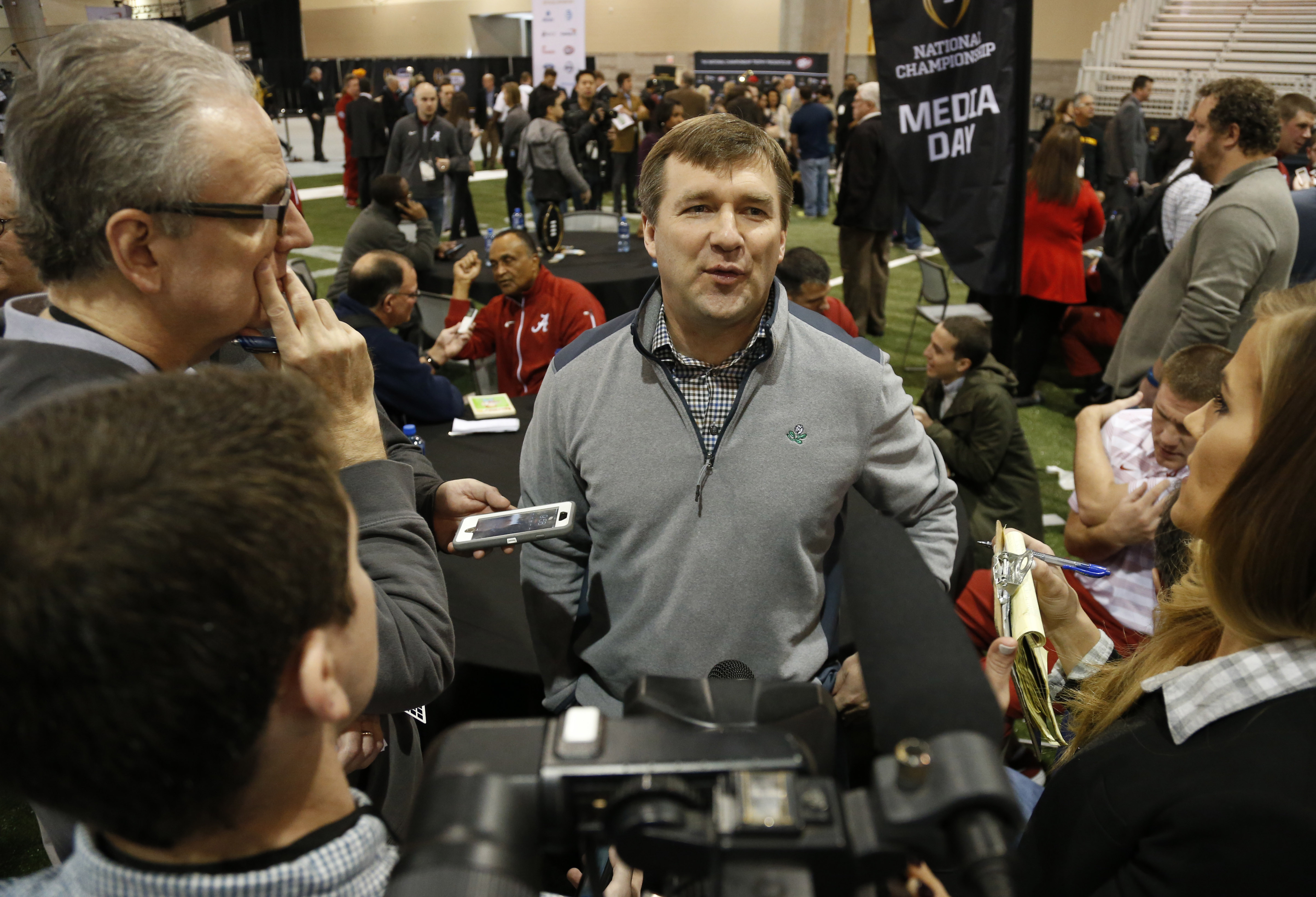
SEC needs to adopt Mark Richt’s transfer approach as policy
By Chris Wright
Published:
Kirby Smart isn’t the first college coach to restrict where a player may transfer.
Ideally, he’ll just be the last.
How is it fair that a coach can run Alabama’s defense one day and Georgia’s football program the next — without being fired, mind you — yet a player can’t have the same freedom to go where he wants, when he wants?
Of course it isn’t fair.
It’s as one-sided, outdated and illogical as telling your ex who she is allowed — or not allowed — to date next.
Transfer restrictions are a tired topic and, frankly, the only reason they continue is college athletes don’t have a union fighting for their rights.
Pro sports had strict employment limitations, too, before Curt Flood stood up and forever changed the landscape.
A.J. Turman — and hundreds of others before him — have no such support.
It doesn’t even matter that Smart cited an SEC rule that doesn’t exist when he said players like Turman can’t transfer inside the conference. Of course they can. And have. As long as they are granted a full release.
It’s a school’s decision — which means it’s the head coach’s decision.
That’s the root of the problem. And it extends well beyond Smart.
Jim McElwain took some heat when it was reported that Florida placed restrictions on where Will Grier could transfer.
Former Gators QB Will Grier did not get full release from scholarship. He's banned from transferring to other SEC schools, maybe more
— Mark Long (@APMarkLong) December 21, 2015
McElwain later told SEC Country that Grier was free to transfer wherever he desired.
“The one thing I’ll never do is make someone do something they don’t want to do,” McElwain told the site. “In life, sometimes change of scenery is good. In this case, he’s going to go have a successful career and go on to play in the NFL. We’ll help him in every way we can.”
Even if he transferred to, say, Tennessee or Kentucky or another SEC East rival?
“I’m not real fired up about seeing him in the SEC, but we signed (off on) a bunch … every school that he brought up. We’re here to support him,” McElwain told the site.
Texas A&M coach Kevin Sumlin reportedly restricted Kyler Murray’s options. Murray, who signed with Oklahoma, wasn’t allowed to pick another SEC school or an Aggies opponent.
Sumlin and the Aggies treated Kyle Allen similarly, according to Fox Sports. Restricted from choosing another SEC school or future opponent, Allen chose Houston.
He might have become a Cougar anyway, but that’s not the point.
A&M’s handling of its two recent quarterbacks is interesting because it reportedly differed from how it managed Kenny Hill’s transfer.
Sumlin said then that there were no restrictions, and Hill transferred to TCU, where he will compete for the starting job this fall.
Who knows why Sumlin’s policy suddenly changed. Furthermore, who cares? The point is: Neither he, nor Smart, nor any coach should even have a policy. They shouldn’t have any role at all in the transfer process.
It’s such a simple solution, supported by common sense and freedoms that apply to the rest of us in just about every situation we encounter: Remove the coach from the process and allow the players go where they want to go, play where they want to play.
The real head-shaker in Smart’s illogical edict was this: As part of his restrictions, Smart specifically prevented Turman — or any other Bulldog — from following Mark Richt to Miami.
“I wanted to set the precedent for the future that kids would not be able to go to Miami right away,” Smart told Dawg Nation. “It’s very important that we understand that, and that’s pretty much standard operating procedure when a coach leaves one place, that a kid can’t go there with the coach. That’s important to me that people understand that.”
It is equally important to know that Smart said this weeks after he brought Mel Tucker with him from Alabama to lead Georgia’s defense. Apparently it’s not nearly as important to set that precedent, that coaches can’t follow coaches.
Mark Richt was right. As usual. Life is too short for coaches to be allowed to restrict where players can transfer.
College football needs a Curt Flood to stand up and say enough, already.
Managing Editor
A 30-time APSE award-winning editor with previous stints at the Miami Herald, The Indianapolis Star and News & Observer, Executive Editor Chris Wright oversees editorial operations for Saturday Down South.







